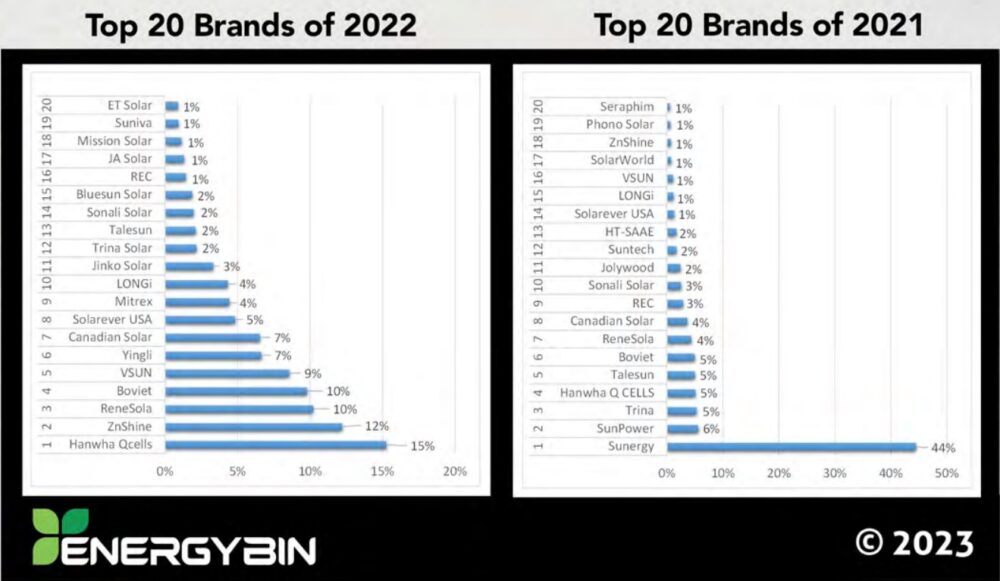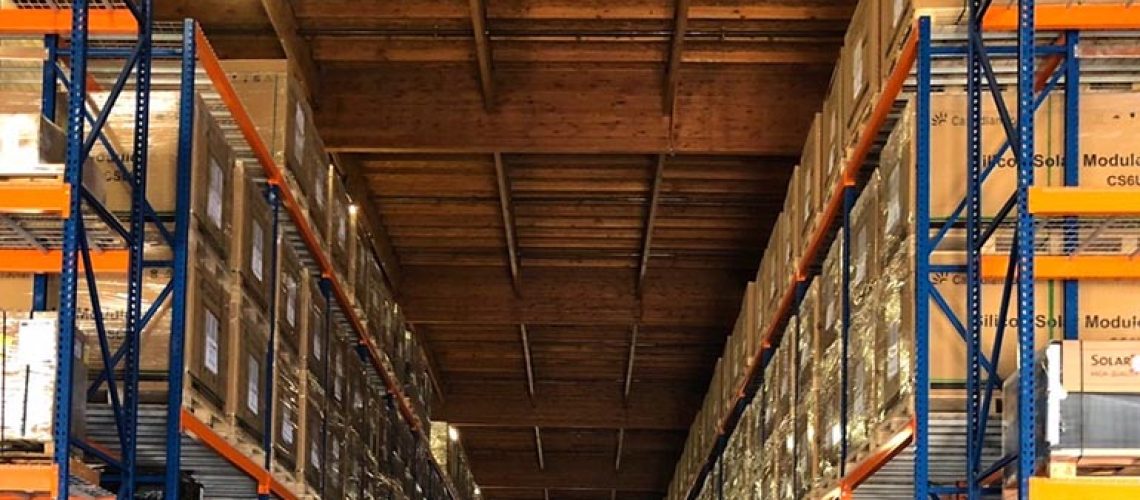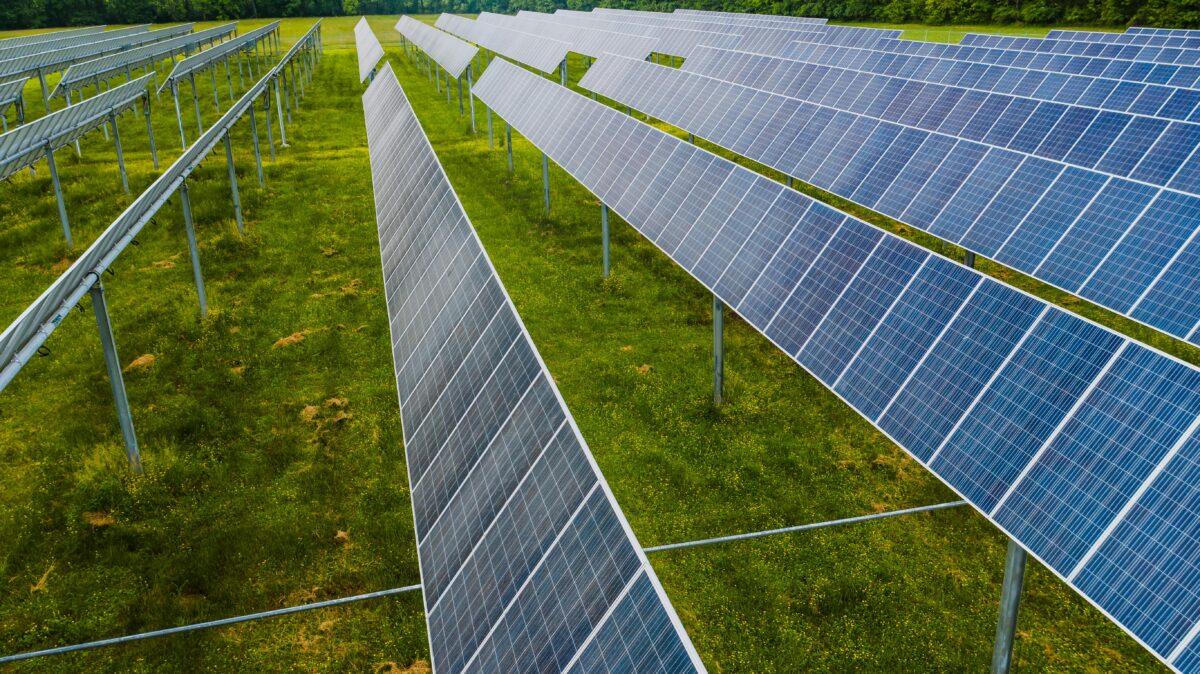Solar product exchange EnergyBin just released its second annual “PV Module Price Index for the Secondary Solar Market” report, which tracks the wholesale pricing and supply of crystalline silicon modules listed for resale on the EnergyBin exchange.
As a B2B wholesale solar equipment exchange comprised of 500+ member companies, EnergyBin facilitates the connection of solar companies looking to buy and sell PV hardware. Although transactions do not take place on the EnergyBin platform, sales listings documented more than 3.6 million modules (or 1.35 GW) posted to the site from January 2020 through December 2022.
“Quantities for sale per listing ranged from single modules to lot sizes of over 15,000 units,” said Renee Kuehl, COO at EnergyBin. “There are a number of reasons why modules and other PV hardware flow into the secondary market. Product flows from clearance, surplus, and miscellaneous one-offs, asset liquidations from company acquisitions and bankruptcies, project leftovers, modules from cancelled or downsized projects, and used and refurbished modules as well. Most of the modules — 91% — are new, but the share of used modules has increased over the years, which gives rise to new opportunities for repair and resale.”
Used, or secondhand, modules represented 9% of sales listings on EnergyBin in 2022, up from 4% in 2021. The largest lot totaled 90,000 units (or 27.5 MW). Used prices ranged from 50-80% less than new. The upward trend in supply points to a growing number of decommissioning projects, where modules coming offline still have viable functionality. As the volume of decommissioned modules increases, so too will the opportunities for repair, remarketing, and asset recovery.
Regarding new modules for sale on the EnergyBin exchange, prices for all c-Si module classes (all-black, bifacial, high-efficiency, mainstream and low-cost) increased in 2022. However, percentage changes from January 2020 through December 2022 were minimal ranging from 0.2-4.2% for most module classes. The exception was all-black modules, which saw an increase of 17.9%. Additionally, bifacial and high-efficiency prices in December were pacing with European spot prices at $0.43/Wp.

The top brand for sale in 2021 was Sunergy, after the company liquidated its California factory.
For the second year, the report findings shed light on the importance of a robust and sustainable secondary solar market to minimize waste and maximize asset recovery. Further, such a market helps with the overall adoption of solar as an affordable energy source, particularly when hardware can be sourced below national price averages. On the EnergyBin exchange, for example, in 2022, all-black modules listed as low as $0.333/Wp, bifacial as low as $0.360/Wp, high-efficiency as low as $0.28/Wp, and mainstream as low as $0.200/Wp.
“With the rapid growth of the global solar industry, the secondary market will also continue to grow,” noted Kuehl. “Growth leads to new opportunities. In the secondary market space, we’ll see these opportunities manifest in the areas of resale, reuse and repair, remanufacturing, and recycling, as well as value-added services that complement these business functions. All are necessary components of a sustainable circular economy.”
Find the full report here.
News item from EnergyBin





